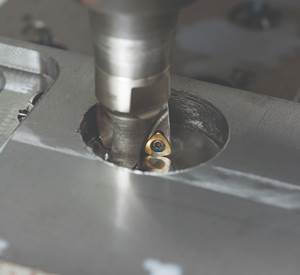Canadian Manufacturing Turning A Corner Against Coronavirus Crisis
Manufacturing in Canada continues to be hit hard by the COVID-19 crisis; however, stats from Canadian Association of Mold Makers’ and Automate Canada’s weekly survey of the coronavirus impactindicate a corner may have been turned.

Manufacturing in Canada continues to be hit hard by the COVID-19 crisis; however, stats from Canadian Association of Mold Makers’ and Automate Canada’s weekly survey of the coronavirus impactindicate a corner may have been turned. Not only have the number of employees on layoff dropped dramatically in the past week, but employees off on quarantine or isolation also dropped.
“This is first solid piece of evidence that the worst may be behind us in terms of impact on the essential workplaces of manufacturing,” says Shelley Fellows. “While the number of workplaces that have reduced their operations to near zero is still high, we have plateaued. The proportion of companies that are almost fully operational has remained consistent each week – another positive sign.”
“We know the survey info is paying dividends as it is helping us better understand how to help our members,” says CAMM Board Chair Mike Bilton. “We are also getting a read on the pulse of this industry in pretty much real time. “

Fellows says the data is key to helping both boards advocate for what is needed both now and in the long term. When asked about the future, manufacturers continue to be most concerned by the negative impact on cash flow this crisis is having along with the mental AND physical well-being of their employees. Those are consistently among the top five concerns cited in the surveys to date, which represent primarily the mold, tool and die industry, as well as industrial automation sector. CAMM and Automate Canada have been assisted in the distribution of each week’s survey by the Canadian Tooling & Machining Association (CTMA).
In order to address the mental health implications of this survey, a well attended webinar was held on April 15 with the Windsor branch of the Canadian Mental Health Association. Tools and resources to positively impact workplace mental health were explained, with an eye to the unique needs of the manufacturing sector.
CAMM and Automate Canada have also launched a bi-weekly “deep dive” study into the cash flow concerns expressed in the surveys. Results for the first report will be released next week.
Responses from the previous week were primarily from the Southwestern Ontario region, which has a significant manufacturing, moldmaking and industrial automation cluster.
Key Points:
- 64% of respondents represent mold, tool or die companies
- 51 manufacturing workplaces reported having no employees on quarantine, up from 32 in week three.
- 43 Workplaces, or 46% of respondents, laid off no workers this week. In another positive trend, this increased from the previous week, where 33% of respondents had not laid anyone off.
- Just under 1/5th of respondents have decided to offer some kind of premium to keep employees working.
- More project cancellations and a slowing of delays and new programs compared to prior weeks.
- For the past 4 weeks, while cash flow worries are still top of mind, employee mental and physical health still keep manufacturers up at night, along with cancellation of projects and reduced demand.
- The increases in workplace shutdowns have slowed, a positive development. 30% of our respondents are at over 90% of full operations. The number of workplaces that are completely (or almost completely) shut down remained fairly consistent at 17%.
- Shutdowns were due primarily to employee absences, loss of work and health and safety concerns.
A COVID-19 impact survey from CAMM and Automate Canada will go out weekly based on the feedback we are receiving. The questionnaire for the financial study was released on April 16th.
Related Content
Laser Welding Versus Micro Welding
The latest battle in finely detailed restoration/repair of mold materials.
Read More6 Ways to Optimize High-Feed Milling
High-feed milling can significantly outweigh potential reliability challenges. Consider these six strategies in order to make high-feed milling successful for your business.
Read MoreMachining Center Spindles: What You Need to Know
Why and how to research spindle technology before purchasing a machining center.
Read MoreHow to Eliminate Chatter
Here are techniques commonly used to combat chatter and guidelines to establish a foundation for optimizing the moldmaking process.
Read MoreRead Next
How to Use Continuing Education to Remain Competitive in Moldmaking
Continued training helps moldmakers make tooling decisions and properly use the latest cutting tool to efficiently machine high-quality molds.
Read MoreReasons to Use Fiber Lasers for Mold Cleaning
Fiber lasers offer a simplicity, speed, control and portability, minimizing mold cleaning risks.
Read MoreAre You a Moldmaker Considering 3D Printing? Consider the 3D Printing Workshop at NPE2024
Presentations will cover 3D printing for mold tooling, material innovation, product development, bridge production and full-scale, high-volume additive manufacturing.
Read More




















